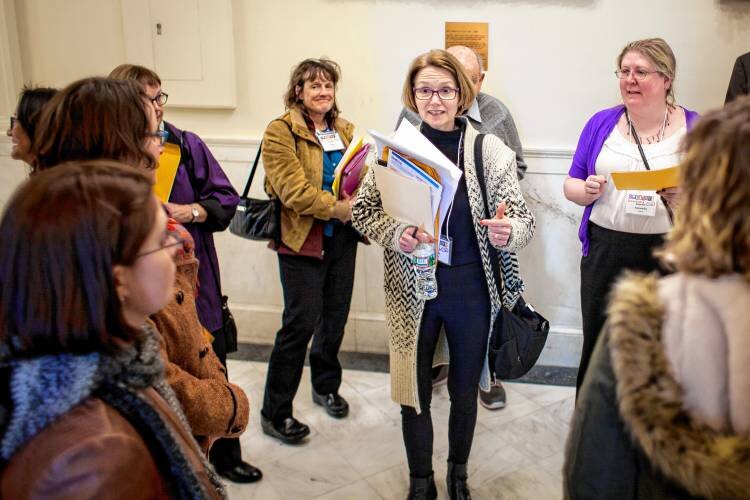Advocate for The Arts In NH
Our mission is to expand awareness of the pivotal role that arts and culture play in New Hampshire’s creative economy and community life. Arts4NH advocates, educates, communicates, and connects, positively influencing how the arts are perceived in New Hampshire.
What is Arts Advocacy?
Advocacy is the act of expressing support for a cause, idea or policy. It’s one way of educating the public about the importance of the arts and why the arts should be an important part of public policy. It includes developing and maintaining relationships with elected officials and policy makers at all levels (local, state, federal) so they’ll know where to find arts expertise when they need it.
Arts4NH advocates for public support of the arts as essential for a strong economy, skilled workforce and healthy communities, and provides resources so you can be an advocate, too.
Who is an Advocate?
You! The most convincing advocates for the arts are people who can talk about personal experiences in the arts and explain how the arts can make a difference in someone's life and benefit the community. You don’t have to have extensive experience to be an advocate, just passion and a little bit of knowledge.
Who and Where to Advocate
Arts advocacy happens with elected officials at all levels in New Hampshire, from school boards to selectmen and aldermen, to the NH House and Senate, Governor and Executive Council, and Congressional delegation. It also occurs with non-elected policymakers, like planning commissions, economic development councils, tourism organizations, units of local government, and state government agencies.
Advocacy is also very important within the arts community, to create coalitions of artists, organizations and audiences.
How to Advocate
Advocacy doesn’t have to be difficult. To follow are a few things to remember when advocating with elected officials and other policymakers/leaders:
Do your homework, both on your message and the person/people with whom you want to meet. Make sure your message is backed with facts and substance. Do some research to learn about the record and background of the person you want to meet – you may know people in common.
Make an appointment. If you’re an organizational advocate, extend an invitation to your location for a tour, event or performance. Explain the purpose of your meeting in advance.
Be brief. Meetings should last no longer than ½ hour.
State your purpose. Within the first few minutes, concisely introduce yourself and describe why you’re there. Remember that all politics are local and explain what your request will mean to your community. Ask for what you want!
Don’t bluff. If you don’t know the answer to a question, say so and promise to follow up with the information.
Seek guidance when appropriate. Policymakers can often provide useful information on how to pursue your issue with others.
Leave something behind. Leave a brochure, fact sheet or other written material about the issues you’ve discussed.
Appreciate the staff. You may be asked to meet with a staff member instead of the policymaker. This can be a good thing, as staff will usually have some knowledge of your issues and will relay your concerns to the policymaker.
Always send a thank you note. In addition to being good manners, a thank you note gives you the opportunity to reiterate your request, mention anything you might have forgotten, or send information you promised to provide.
Maintain relationships with policymakers. Get or stay involved in local government, politics and your community to give ongoing visibility to the arts!
Here is helpful Information relating to narrative and messaging for Advocacy
Important Links
New Hampshire Governor’s Office
New Hampshire Executive Council
New Hampshire House of Representatives
New Hampshire Congressional Delegation
New Hampshire Cities and Towns

